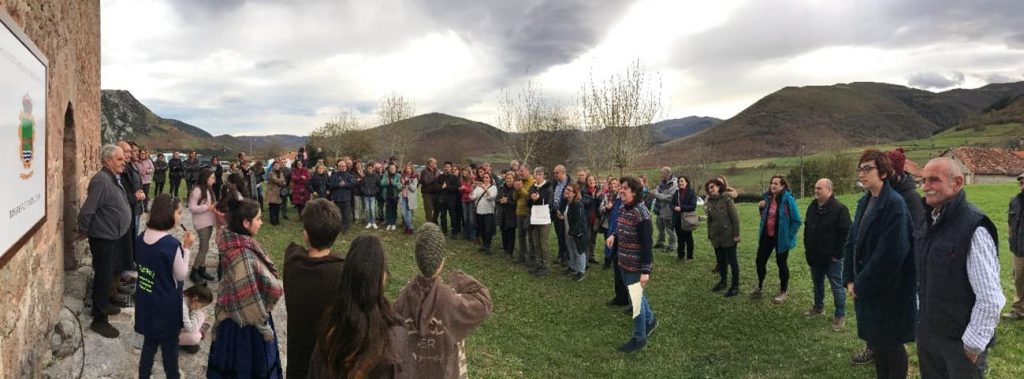Since the beginning of the Rural Development, Heritage and Territory Programme in the Nansa and Peñarrubia valley, great importance has been given to socio-cultural animation, aimed at both the elderly and children and young people, as a basis for the closeness required by any rural development initiative.
Through this close contact with the population, we know first-hand their needs and concerns in terms of education, culture, sport, the elderly … offering them new initiatives that broaden their horizons.
Strengthen the educational offer of the schools of the Nansa Valley
One of the Foundation’s priorities, in collaboration with the Ministry of Education and Culture, is to give added value to the Nansa schools, strengthening their educational offer and consolidating the main educational centre in the Valley.
The pilot project “Have fun and Learn” was launched, through which, sessions of school support, computer science and English classes were given outside of school hours with the incorporation of a native teacher. In addition, the educational centre has become part of the Botin Foundation’s Network of Responsible Education Schools.
At the same time, we have also worked with the rural unitary schools, offering them these sessions adapted to their circumstances.
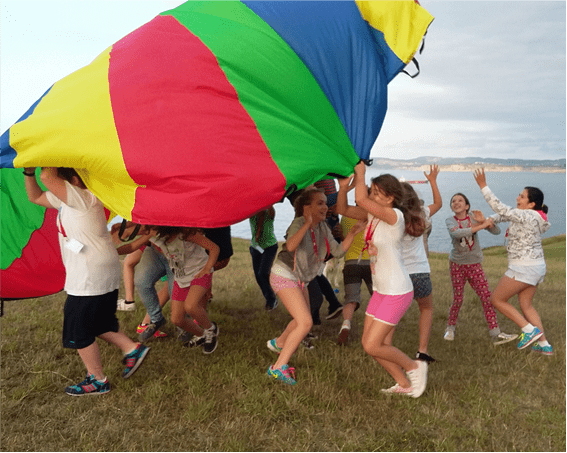
Cultural trips with the Nansa children
As a result of the Extracurricular Activities Programme “Have fun and Learn”, in which the dynamization team has been transmitting to the young people of the valley the importance of knowledge of English as a second language, as well as the need to develop skills that awaken the entrepreneurial gene. At the request of the 10 to 14 year old school children, cultural trips began with London to continue with Brussels and Budapest.
The young people are accompanied at all times by the team of facilitators who, in addition to coordinating the trip, organize dynamization activities.
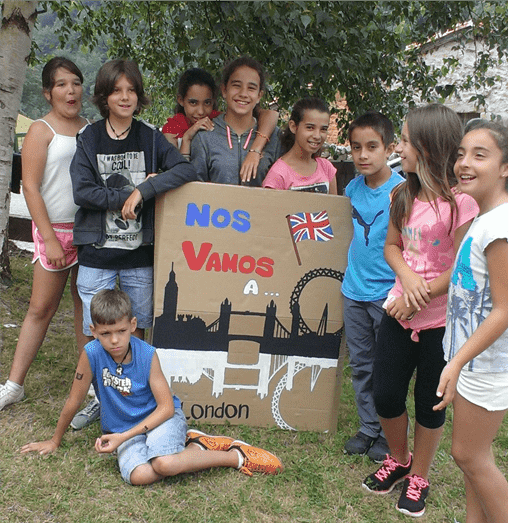
Activities with seniors
Focused on the older ladies of Nansa and Peñarrubia, two initiatives are worked in between, the Reading Club and the Memory Workshops, some proposals that promote reading and enrich the understanding of the chosen texts, as well as the shared experience in the dialogical gatherings typical of this practice.
The fruit of these workshops has been the consolidation of interpersonal ties and social cohesion, as it is a cultural practice that invites participation.
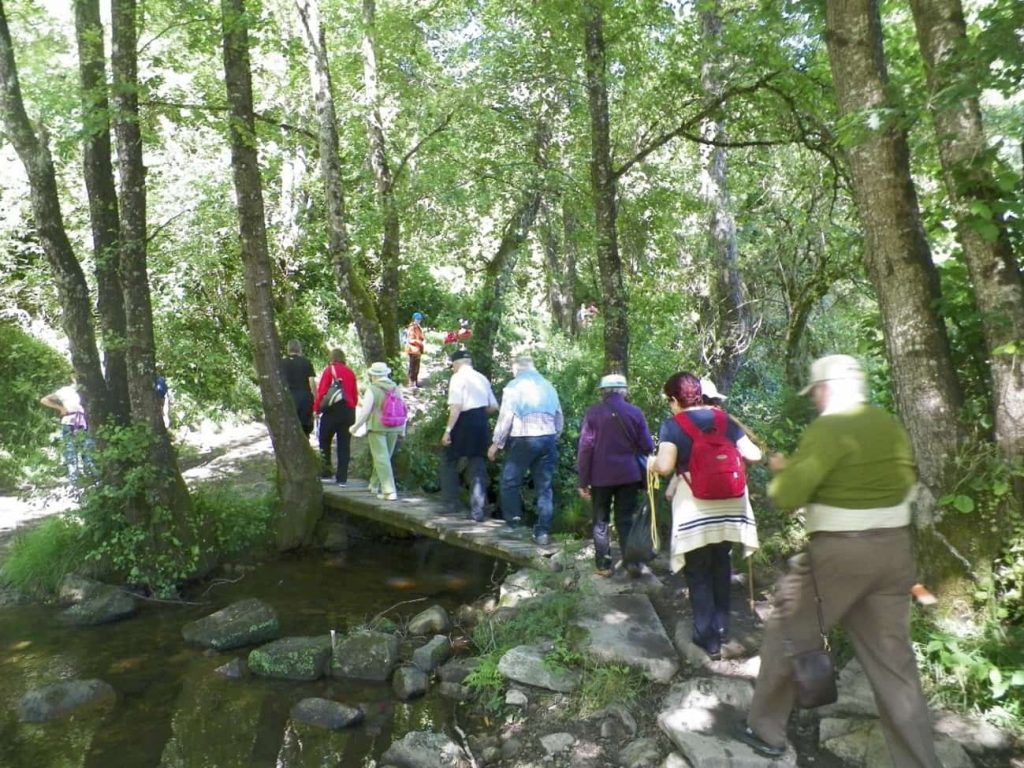
Activities with youth
Initiatives have been carried out to contribute to the development of young people between 18 and 30 years old, thus being able to accompany them in their job training to improve the business fabric of the area. Such is the case of the organisation of a Free Time Activities Monitor course or Meetings with Young People, offering them the tools and knowledge that allow them to introduce innovation and add value to their future professions.
Rectoral House
For the development of this area, there is a group of promoters who are in the territory, executing the projects or initiatives that are planned annually. In addition, the Foundation has the Rectoral House of Puente Pumar, consolidated as the headquarters of the Botin Foundation in the valley. Activities of a social and cultural nature are carried out there, organised by both the Foundation and the inhabitants of the valley, which means that more than a thousand people pass through the Rectoral House each year.
Workshops with locals
To promote social cohesion, promote citizen spirit and promote economic and cultural initiatives, workshops have been held for the adult population. Such is the case of the zamarrón workshop or workshops for possible complementary trades.
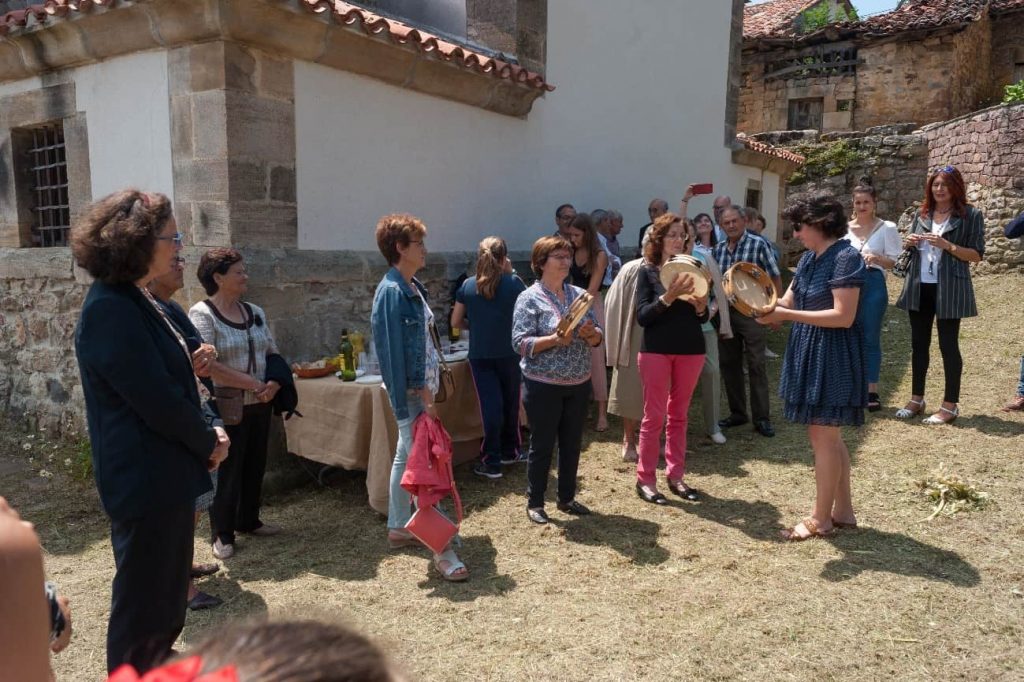
European Heritage Days
Initiative created in 1991 by the Council of Europe and the European Union. Its purpose is to accentuate the unity and diversity of the European territory, where monuments, landscapes, rural centres and historic cities become a common and shared space, a place with open doors for citizens who communicate with each other about cultural heritage.
The objective of these days in the Nansa Valley, Peñarrubia and Val de San Vicente is for visitors to be able to explore the most significant elements of the cultural heritage and at the same time encourage small territories to have their place on the map of Europe.
They are an invitation to cultural, natural, gastronomic and sports tourism, as well as encouraging a better knowledge of these territories.
The sixth and final edition of this programme focused on increasing citizens’ knowledge about the hydraulic mill and river ports of the Nansa basin.
